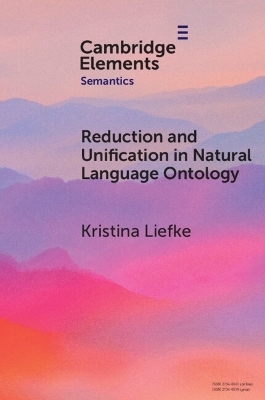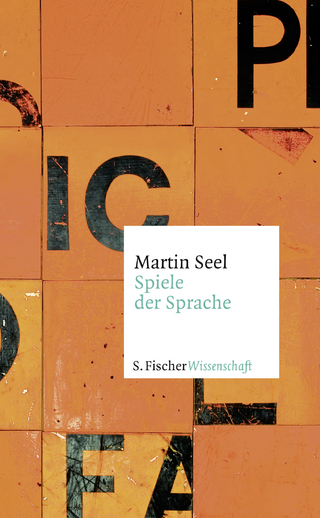
Reduction and Unification in Natural Language Ontology
Seiten
2025
Cambridge University Press (Verlag)
978-1-009-55965-2 (ISBN)
Cambridge University Press (Verlag)
978-1-009-55965-2 (ISBN)
- Lieferbar (Termin unbekannt)
- Versandkostenfrei innerhalb Deutschlands
- Auch auf Rechnung
- Verfügbarkeit in der Filiale vor Ort prüfen
- Artikel merken
This Element investigates which ontological categories (such as individuals, properties, events, degrees, and kinds) are minimally required to provide a semantics for natural language. It yields insights into the requirements on minimal semantic ontologies for natural language and the challenges for semantic ontology engineering.
Semantic theories for natural language assume many different kinds of objects, including (among many others) individuals, properties, events, degrees, and kinds. Formal type-theoretic semantics tames this 'zoo' of objects by assuming only a small number of ontologically primitive categories and by obtaining the objects of all other categories through constructions out of these primitives. This Element surveys arguments for this reduction of semantic categories. It compares the ontological commitments of different such reductions and establishes relations between competing foundational semantic ontologies. In doing so, it yields insights into the requirements on minimal semantic ontologies for natural language and the challenges for semantic ontology engineering.
Semantic theories for natural language assume many different kinds of objects, including (among many others) individuals, properties, events, degrees, and kinds. Formal type-theoretic semantics tames this 'zoo' of objects by assuming only a small number of ontologically primitive categories and by obtaining the objects of all other categories through constructions out of these primitives. This Element surveys arguments for this reduction of semantic categories. It compares the ontological commitments of different such reductions and establishes relations between competing foundational semantic ontologies. In doing so, it yields insights into the requirements on minimal semantic ontologies for natural language and the challenges for semantic ontology engineering.
1. Introduction; 2. Descriptive Natural Language Ontology; 3. Merits of Typing Ontologies; 4. Type Theory Basics; 5. Typing Montague's Ontology; 6. Typing Larger Ontologies; 7. Type Uni_cation and Meta-Ontology; 8. Conclusion; References.
| Erscheinungsdatum | 07.01.2025 |
|---|---|
| Reihe/Serie | Elements in Semantics |
| Zusatzinfo | Worked examples or Exercises |
| Verlagsort | Cambridge |
| Sprache | englisch |
| Themenwelt | Geisteswissenschaften ► Philosophie ► Sprachphilosophie |
| Geisteswissenschaften ► Sprach- / Literaturwissenschaft ► Sprachwissenschaft | |
| ISBN-10 | 1-009-55965-6 / 1009559656 |
| ISBN-13 | 978-1-009-55965-2 / 9781009559652 |
| Zustand | Neuware |
| Informationen gemäß Produktsicherheitsverordnung (GPSR) | |
| Haben Sie eine Frage zum Produkt? |
Mehr entdecken
aus dem Bereich
aus dem Bereich
Wie die Menschheit zu ihrer größten Erfindung kam
Buch | Softcover (2022)
C.H.Beck (Verlag)
18,00 €
Macht und Legitimität politischer Sprache im Prozess der europäischen …
Buch | Softcover (2023)
Nomos (Verlag)
74,00 €


